My Alzheimers Then Finding Her Again
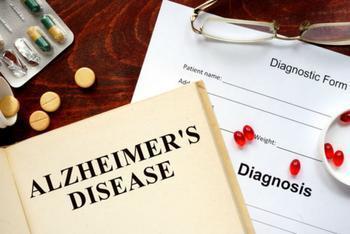
Exercise could help protect against Alzheimer's
Researchers suggest that staying active can assistance better memory
Millions of people across the country are currently suffering from Alzheimer'due south disease, and experts have however to notice a cure. However, researchers continue to conduct experiments in an effort to aid patients live equally comfortably every bit possible.
Recently, researchers from Columbia University Irving Medical Eye found that practice could assist reduce the risk of developing Alzheimer's. Exercising releases the hormone irisin, which has been linked to neuron growth in the office ...
Go on reading
Contempo Manufactures
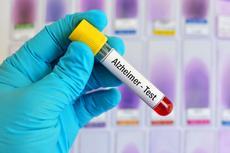
Claret examination to help diagnose Alzheimer'due south in testing stages
Researchers are confident in the early on results
Testing for Alzheimer'south disease can be a long, costly, and tiresome procedure for patients, but researchers from Brigham and Women's Infirmary have been working to make the testing process easier on patients.
The group has developed a blood test that would evaluate the level of tau -- the leading protein in the brain associated with Alzheimer's -- before a patient is even showing signs or symptoms of the affliction.
"A blood exam for Alzheimer'southward disease could be administered hands and repeatedly, with patients going to their primary care part rather than having to go into a hospital," said Dr. Dominic Walsh. "Ultimately, a blood-based test could supercede cerebrospinal fluid testing and/or brain imaging. Our new test has the potential to practise but that."
Though the examination is currently in the testing stages, Dr. Walsh is calling it a "transformative breakthrough" based on the early on results.
How it works
Tau is a poly peptide in the brain that is most typically associated with Alzheimer's. Though tau can develop through a number of different related molecules, the researchers were able to create a model that differentiates between the private types of tau to ensure that the blood test comes up with the most accurate result.
The researchers have conducted ii trials so far with participants from Harvard'southward Crumbling Brain Study and the Institute of Neurology in London. The outset group consisted of 65 participants and the second group had 86.
Everyone involved in the written report donated samples of plasma and cerebrospinal fluid, which helped the researchers look at the breakup of the tau protein and see exactly what was linked to Alzheimer'due south.
In both tests, the researchers found 1 strand of tau -- NT1 -- that was effective in predicting and identifying cases of Alzheimer'south.
The next step for the researchers is to open the test up to larger groups of participants to further test its effectiveness on a wider sample. Withal, these early results proved to Dr. Walsh and his team that they could be on the right track.
"We've made our data and the tools needed to perform our test widely available because we desire other research groups to put this to the exam," he said. "It'southward important for others to validate our findings so that we can be certain this test will work beyond different populations."
Fighting Alzheimer'south
While this claret examination could potentially modify the way doctors become about diagnosing Alzheimer'southward, beau researchers have fabricated strides this yr in an effort to meliorate diagnose and treat the disease.
In late September, researchers from the Clinical Retentiveness Research Unit at Lund University in Sweden adult a new brain imaging technique that would help doctors make the most accurate Alzheimer's diagnoses.
The researchers used a PET scan to evaluate the level of tau in the encephalon by administering a marker for the poly peptide before the test. The researchers found this new exam to exist more than successful than traditional Alzheimer'due south screening methods.
"If the patient has tau in certain parts of the brain, the mark will notice it," said researcher Oskar Hansson. "The result -- whether Alzheimer tau is present or non -- is very conspicuously visible on the PET images."
On the treatment front, researchers found success with a clinical trial for a drug being developed to care for Alzheimer'due south.
Amyloid is some other poly peptide often found in the brain with Alzheimer's, and researchers from Biogen and Eisai worked to develop BAN2401 -- an anti-amyloid drug. Though unsuccessful in initial tests, this new and improved version of the drug was found to tedious the progression of Alzheimer'due south in the study's clinical trial.
Testing for Alzheimer's illness can be a long, plush, and tiresome process for patients, merely researchers from Brigham and Women'south Hospital have been worki...
Read less Read more

Regular exercise reduces autumn-related injuries for those with dementia and Alzheimer's
Researchers say staying agile could be primal to promoting better wellness
The symptoms and risks associated with Alzheimer's disease (AD) and dementia accept been well-documented, and with over 5.v million adults beyond the United States currently suffering, the medical community continues to expect for ways to convalesce discomfort and make advancements.
A new report was recently published in the periodical American Geriatrics Society that explores the effect exercise has on reducing the risk of falls amid Alzheimer'southward and dementia patients. The researchers notation that over sixty percent of people with AD/dementia fall every twelvemonth, and they are twice as probable to fall compared with people who don't have AD/dementia.
More movement
The researchers' principal goal was to run across if AD/dementia patients with neuropsychiatric symptoms -- such every bit depression, anxiety, irritability, apathy, aggression, hallucinations, etc. -- had a reduced risk of falling when exercise was a regular function of their routines.
The researchers tested this by evaluating the FINALEX trial -- a study that includes a wide demographic of people with Advertisement/dementia and neuropsychiatric symptoms. The study compared participants who had customs care -- which didn't include exercise -- with those who participated in group or habitation practice.
The two groups were monitored by physiotherapists for one twelvemonth and engaged in physical activity for one hour ii times per week. The participants were evaluated based on endurance, strength, multitask grooming, and balance.
I of the biggest takeaways from the study was that the participants who had severe neuropsychiatric symptoms -- such as depression or anxiety -- were at a greater risk for falls, though the exercise proved to be a benign method. Additionally, those who had less astringent symptoms -- but too didn't exercise -- nonetheless had a high risk of falling.
Those in the exercise groups were found to be at less of a hazard for falls, while the opposite was true for those who weren't in the exercise groups.
The researchers believe that incorporating exercise into a routine of Advertizement/dementia patients will likely reduce the gamble of falls, though more inquiry will demand to exist done in this expanse to confirm the results.
Consistent findings
The findings from this study prove to be consistent with a study from earlier this year which plant that exercise was linked to improved brain function and tin fifty-fifty help preclude memory loss, cognitive function, and diseases similar Alzheimer'southward and dementia.
Conducted past researchers from UT Southwestern, the written report found that keeping active caused nerve fibers in the encephalon to deteriorate at a much slower rate than for those who didn't practise as frequently.
"Show suggests that what is bad for your center is bad for your brain," said Dr. Rong Zhang of UT Southwestern. "We need studies like this to notice out how the ii are intertwined and hopefully find the right formula to help prevent Alzheimer's disease."
The symptoms and risks associated with Alzheimer's affliction (Ad) and dementia accept been well-documented, and with over 5.5 million adults across the United...
Read less Read more

New study suggests a strong connection between canker and Alzheimer's
One researcher says herpes could business relationship for 'l percentage or more' of Alzheimer's cases
While researchers continue to look for the cause of Alzheimer's affliction, a new study published in Frontiers in Aging Neuroscience explores the connection between the development of the condition and the canker virus.
Researcher Ruth Itzhaki has spent over two decades studying the relationship betwixt herpes and Alzheimer's, and in this virtually recent study she studied the effects that herpes flare ups accept on neurons in the encephalon.
Exploring the connection
Herpes never goes away entirely, with the condition ofttimes flaring upwardly during times of stress or illness. The most astringent form of canker is Canker Simplex Virus i (HSV1), and co-ordinate to Itzhaki, this strand of the infection could account for "fifty percent or more of Alzheimer'due south disease cases."
A key component of Itzhaki's theory was testing an antiviral drug that could convalesce the gamble of senile dementia in people that had canker.
To get an accurate population sampling to test this theory, Itzhaki utilized data taken from Taiwan's National Health Insurance Inquiry Database, which documents information on disease and infections.
As near all of Taiwan's population is enrolled in the Database, Itzhaki was able to evaluate 3 studies published between 2017 and 2018 that described the means patients with HSV1 were treated past healthcare professionals; the data showed the evolution of those with senile dementia.
Itzhaki found that the antiviral drug was an effective course of treatment for those who were infected with HSV1 and then developed dementia. She also establish that those who already have HSV1 areat a much greater risk of later developing senile dementia.
Itzhaki noted that this study focuses on those with the near astringent cases of the infection, and futurity inquiry would have to focus on dementia rates in those with more than mild forms of herpes.
Despite this, Itzhaki was confident in the study's results.
"Considering that over 150 publications strongly support an HSV1 role in Alzheimer's, these Taiwan findings profoundly justify usage of anti-herpes antivirals -- which are prophylactic and well tolerated -- to care for Alzheimer'south disease," said Itzhaki. "They also incentivize development of an HSV1 vaccine, which would likely be the about effective treatment."
Recent Alzheimer's breakthroughs
Alzheimer'southward research continues to be a point of emphasis for the medical community, and researchers have made considerable contributions to the field in recent months.
Back in July, a major drug company reported positive results from a clinical trial for a new Alzheimer's drug. The study involved nearly 900 participants in the early stages of Alzheimer'southward, and after 18 months, the drug was constitute to be successful in slowing the progress of the illness.
Later in the summertime, researchers at the University of Adelaide found a link between fe in our cells and a rare genetic mutation that causes Alzheimer's.
Most recently, researchers from the Clinical Memory Enquiry Unit at Lund University constitute a new brain imaging technique that would help doctors diagnose Alzheimer'southward more than accurately. The PET scan involved in the report proved to be more successful than traditional treatments that are currently used to diagnose Alzheimer's, and the researchers are confident the method will gain popularity worldwide.
While researchers continue to look for the cause of Alzheimer's illness, a new study published in Frontiers in Aging Neuroscience explores the connection b...
Read less Read more than

New brain imaging technique may help doctors more accurately diagnose Alzheimer's
Researchers are optimistic most the futurity of the technique
Researchers from the Clinical Memory Research Unit at Lund University in Sweden recently published an article detailing a new brain imaging technique that would help doctors diagnose Alzheimer's more accurately.
In the study, the researchers focused on the spread of two Alzheimer'due south-linked proteins throughout the encephalon -- beta-amyloid and tau. While beta-amyloid tin start spreading years before the patient starts showing symptoms of Alzheimer's, the presence of tau on a brain scan is an indicator that the disease is much further along.
"It is when tau begins to spread that the neurons start dying and the patient experiences the get-go bug with the affliction," senior researcher Rik Ossenkoppele said in a press release. "If nosotros scan a patient with memory difficulties and he or she proves to have a lot of tau in the encephalon, we know with a high degree of certainty that it is a example of Alzheimer's."
The study shows significant hope for the futurity of Alzheimer's research. With the correct diagnosis, patients can be put on the right track regarding a medication and diet regimen -- two things that take been linked to improved cognitive role for those living with Alzheimer's.
The written report
The researchers conducted an international report with over 700 participants, and found their method to be successful in correctly diagnosing Alzheimer's in ninety-95 percent of all cases.
"The method works very well," researcher Oskar Hansson said in the press release. "I believe it will exist practical clinically all over the world in merely a few years."
Using a PET scan to determine the level of tau in each patient, the researchers were able to get the most clear and precise image. Co-ordinate to Hansson, the patients received an Iv of the tau marking and the PET scan did the rest.
"If the patient has tau in certain parts of the brain, the marking will detect it," Hansson said. "The result -- whether Alzheimer tau is present or not -- is very clearly visible on the PET images."
The new test proved to be more successful than traditional treatments that are currently used to diagnose Alzheimer's. Because of the overlap betwixt Alzheimer's symptoms and those of other conditions, getting an accurate diagnosis can be hard. The researchers' tau test showed its effectiveness -- beating out the often used beta-amyloid-PET scan and MRI scans.
The full report has been published in Journal of the American Medical Association (JAMA).
Researchers from the Clinical Retentiveness Enquiry Unit at Lund University in Sweden recently published an article detailing a new brain imaging technique that...
Read less Read more than

Alzheimer's drug yields positive results
The same drug disappointed during clinical trials in December
Afterward a series of disappointments, a major drug visitor has reported promising clinical trial results from its drug to care for Alzheimer'south disease.
Massachusetts-based Biogen and its Japanese partner Eisai jointly announced positive topline results from the Stage Two report with BAN2401, an anti-amyloid drug. The buildup of amyloid plaques in the encephalon is thought to exist a key contributor to Alzheimer'south.
The study was a big ane, involving 856 patients in the early on stages of Alzheimer'due south disease. The study achieved "statistical significance" in its effectiveness at 18 months, slowing the progression of the disease.
Researchers were encouraged because BAN2401 is the same drug that produced disappointing results back in December. The difference, they say, is the drug was merely monitored for 12 months. In the second trial, the extra six months produced an improvement.
Mild to moderate side effects
This time, the researchers said BAN2401 showed an adequate tolerability profile through 18 months of treatment. There were some side effects, but they were characterized equally mild to moderate in severity.
All in all, researchers in the field of Alzheimer's disease treatment and written report expressed new hope at the results.
"The xviii-month results of the BAN2401 trial are impressive and provide important support for the amyloid hypothesis," said Jeff Cummings, M.D., founding director, Cleveland Clinic Lou Ruvo Center for Brain Health. "I look forrad to seeing the full information ready shared with the broader Alzheimer'south community as we advance confronting this devastating illness."
Alzheimer'southward is a blazon of dementia that causes issues with memory, thinking, and behavior. Symptoms usually develop slowly and get worse over time, becoming severe plenty to interfere with daily tasks. Eventually, the disease is fatal.
Non a normal part of aging
Aging is a major risk gene, but the Alzheimer'due south Clan points out that the disease is non a normal part of aging. Currently, an estimated 5.five million people who are 65 or older have been diagnosed with Alzheimer's disease. About 200,000 people nether historic period 65 accept what is called younger-onset Alzheimer'due south.
"The prospect of being able to offer meaningful affliction-modifying therapies to individuals suffering from this terrible disease is both exciting and humbling," said Dr. Alfred Sandrock, executive vice president and chief medical officer at Biogen. "These BAN2401 eighteen-month data offer important insights in the investigation of potential treatment options for patients with Alzheimer's disease and underscores that neurodegenerative diseases may not be every bit intractable as they one time seemed."
In an interview with CNBC, Biogen chairman Stelios Papadopoulos chosen the results an encouraging commencement step, merely he believes farther progress is possible. He said a best case estimate for when BAN 2401 could exist bachelor to treat patients would exist in two to three years.
Later a series of disappointments, a major drug company has reported promising clinical trial results from its drug to treat Alzheimer'due south disease.Massac...
Read less Read more than
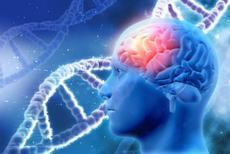

Researchers place brain protein as potential target for Alzheimer's research
They believe that the disease may occur partly due to the breakdown of an important brain system
Recently, researchers began developing a potential therapy for concussions, using an FDA-approved drug that helps reduce the harmful effects of swelling. Specifically, they found that the expression of a sure membrane protein called aquaporin-four increased dramatically after a caput injury and caused damage.
While work on that projection continues, other experts believe that aquaporin-four may be a prime target for Alzheimer's research. A study conducted past researchers from Oregon Health & Science University has revealed a connexion betwixt the protein and possible prevention of the brain disease. While it may not materialize into a lasting cure, the researchers believe that their work could contribute to future therapies and prevention strategies.
"It suggests that aquaporin-4 might be a useful target in preventing and treating Alzheimer's disease," said Dr. Jeffrey Iliff, senior author of the study. "However, we aren't nether whatever illusion that if we could but gear up this 1 thing, and then nosotros'd be able to cure Alzheimer'southward Illness."
System breakdown
In a broad sense, Alzheimer's isn't a illness that happens all at in one case – it takes time and is much more progressive. There is currently no cure for it, but several therapies have been developed that may be constructive in slowing information technology down; the researchers believe that aquaporin-4 could provide another.
Aquaporin-4'due south functions as part of the encephalon'southward glymphatic arrangement. Under certain conditions, it is the poly peptide that allows cerebral-spinal fluid to enter the encephalon and launder abroad other proteins similar amyloid and tau – the build upwardly of which are master drivers of Alzheimer's.
The researchers believe that when the system regulating aquaporin-4 breaks down, amyloid and tau are allowed to build upward unchecked, leading to nerve damage. They tested this theory by analyzing iii groups of 79 donated brains – people younger than 60 with a history of Alzheimer'southward, people younger than threescore without a history of any neurological disease, and people over 60 without Alzheimer's.
They found that aquaporin-4 levels were well organized and ordered in the brains of people without Alzheimer'south or a history of neurological affliction, simply older brains with Alzheimer's had very disorganized aquaporin-iv levels. The researchers posit that Alzheimer's may have developed in these brains due to decreased function to clear away harmful proteins.
Concluding year, the researchers were given a $1.4 million grant from the Paul G. Allen Family Foundation to go on their research and develop new imaging techniques that could capture encephalon processes as they happened. The team's total written report has been published in JAMA Neurology.
Recently, researchers began developing a potential therapy for concussions, using an FDA-canonical drug that helps reduce the harmful furnishings of swelling. S...
Read less Read more

Tests on promising Alzheimer'southward drug end in disappointment
Ely Lilly will not seek FDA approval for solanezumab
There have been many promising breakthroughs in the field of Alzheimer's disease research, giving hope to millions at risk of the devastating disease.
The flip side of that, of class, is when these hopeful promises simply don't pan out. And so it was with great thwarting that pharmaceutical giant Eli Lilly announced that its promising new drug solanezumab "did not meet the primary endpoint" in it'due south final, phase 3 testing. The company said it would not seek Food and Drug Assistants (FDA) approving of the drug.
Lilly said patients in the trial who were treated with solanezumab did not feel a statistically meaning slowing in cerebral decline compared to patients treated with placebo. It dashed the promise raised by previous enquiry.
Solanezumab is a mono-clonal antibody targeting excess amyloid in the brain. It was designed for patients considered to be at hazard of Alzheimer's merely who had not displayed symptoms of the disease.
Slowing memory loss by 10 years
Researchers were hopeful that doctors might eventually utilise positron emission tomography (PET scans) to locate beta amyloid as it begins to form plaques in the brains of people with Alzheimer'due south disease 10 to xx years before they show any symptoms of the disease.
The drug would then be administered, removing the harmful protein from the brain before it could brainstorm to build upwardly. Researchers were hopeful it might slow memory loss by at least 10 years.
"The results of the solanezumab EXPEDITION3 trial were non what we had hoped for and we are disappointed for the millions of people waiting for a potential disease-modifying handling for Alzheimer's affliction," said John C. Lechleiter, Ph.D., chairman, president and CEO of Eli Lilly, in a written argument. "We will evaluate the impact of these results on the evolution plans for solanezumab and our other Alzheimer's pipeline assets."
Lechleiter also issued a statement to the Alzheimer'south customs in the video below, vowing his company would go along pursuing effective treatments.

Lilly said it would present further findings from the study at the Clinical Trials on Alzheimer's Disease coming together in early December.
There have been many promising breakthroughs in the field of Alzheimer's disease research, giving hope to millions at risk of the devastating disease.T...
Read less Read more than
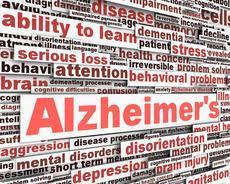

Researchers work towards blood test to bank check for Alzheimer's disease
Having such a test could assistance with early detection and prevention efforts
New research conducted at Cardiff University could allow for earlier detection of Alzheimer's affliction, a crucial step towards mitigating the damaging effects that it has on people subsequently in life.
Using nigh 300 participants, researchers used blood tests to distinguish certain biomarkers which could predict whether or not someone would develop the affliction in the virtually hereafter.
"Our inquiry proves that it is possible to predict whether or non an individual with balmy memory problems is likely to develop Alzheimer's illness over the next few years," said Paul Morgan, Manager of Cardiff University's Systems Amnesty Research Establish.
"Nosotros hope to build on this in lodge to develop a elementary blood test that tin can predict the likelihood of developing Alzheimer's illness in older people with mild, and maybe innocent, memory harm."
Influential findings
In social club to distinguish the biomarkers, Morgan and his colleagues took claret samples from participants who had mild memory bug and analyzed them for protein content. After a year, the researchers re-assessed each participant.
They plant that nearly a quarter of all participants went on to develop Alzheimer's. Interestingly, those who went on to develop the disease had three proteins in their blood that differed dramatically at the initial screening from those who remained good for you. This evidence could provide some insight into how these allowed arrangement proteins contribute to inflammation and Alzheimer'south every bit a whole.
Morgan believes that these findings could greatly influence how health officials handle Alzheimer'southward where he lives in the U.k..
"Alzheimer's disease affects around 520,000 people in the UK and this number is continually growing as the population ages. As such information technology is important that we find new ways to diagnose the disease early, giving united states of america a take a chance to investigate and instigate new treatments earlier irreversible damage is done," he said.
The full report has been published in the Periodical of Alzheimer's Disease.
New research conducted at Cardiff University could let for before detection of Alzheimer'south disease, a crucial step towards mitigating the damaging effec...
Read less Read more

A nutrition to keep your memory sharp
Australian researchers say the Mediterranean diet slows cognitive turn down
Well-nigh of utilise become on a diet to lose weight or to improve our physical status. Simply researchers in Australia accept concluded that the Mediterranean diet is non only skillful for yous physically, just mentally besides.
Writing in the journal Frontiers in Nutrition, lead writer Roy Hardman from Swinburne University of Technology in Melbourne and his colleagues say the nutrition appears to deadening cognitive turn down.
The Mediterranean diet includes a lot of institute foods, like leafy greens, fresh fruit and vegetables, cereals, beans, seeds, nuts, and legumes. There is less dairy and red meat, and olive oil is the preferred source of fat.
"The about surprising consequence was that the positive furnishings were found in countries around the whole world," Hardman said. "So regardless of existence located outside of what is considered the Mediterranean region, the positive cognitive effects of a higher adherence to a MedDiet were similar in all evaluated papers."
Eye healthy too
For the nigh part, doctors recommend the Mediterranean diet for its positive effects on the heart.
"Enquiry has shown that the traditional Mediterranean nutrition reduces the risk of heart disease," the Mayo Dispensary reports on its website. "The nutrition has been associated with a lower level of oxidized depression-density lipoprotein (LDL) cholesterol — the "bad" cholesterol that's more likely to build upwards deposits in your arteries."
And in line with this latest research from Australia, the Mayo Dispensary staff notes that the Mediterranean diet has likewise been associated with a lower incidence of Alzheimer'southward disease.
The Australian study found the nutrition improves attention, memory and employ of language. In terms of retentivity, information technology found notable improves in delayed recognition, working memory, and executive role.
What is it nigh the Mediterranean diet?
The question is why. What is it about the Mediterranean diet that supports better cognitive function? The authors suggest several things, including a reduction in inflammation, improved vitamin and mineral imbalances, maintaining a good for you weight, and improving polyphenols in the blood.
If y'all are interested in trying the Mediterranean diet, information technology is always advisable to hash out any changes in eating patterns with your md. Assuming he or she agrees it might be beneficial for you, here are some Mediterranean nutrition recipes to get you lot started.
Most of utilize keep a diet to lose weight or to improve our physical condition. Merely researchers in Australia take concluded that the Mediterranean nutrition is no...
Read less Read more

Scientists explain why Alzheimer's disease ever gets worse
The damaging protein hops from neuron to neuron, researchers say
Researchers at Columbia University Medical Centre accept identified a way they say Alzheimer's disease tin spread through the brain.
Their study, published in the journal Nature Neuroscience, says the toxic poly peptide tau jumps from one neuron to some other. They say their discovery helps explain why merely one area of the brain is affected when Alzheimer'due south begins, only that much of the brain is damaged in the disease's later on stages.
They say it also explains why Alzheimer'southward always gets progressively worse, never better. Significantly, however, that could change.
"By learning how tau spreads, we may be able to stop it from jumping from neuron to neuron," said Karen Duff, professor in the department of pathology and jail cell biology.
Limiting the damage
If doctors were successful in doing and so, she says they might be able to end or limit the progression of the disease.
This isn't the first time researchers have suggested that Alzheimer's can spread through the encephalon. The idea start gained traction among medical scientists earlier in the decade when it was plant tau moved from neuron to neuron through the brains of mice.
The latest study institute that tau travels inside the brain, moving from neuron to neuron. That allows it to touch on other parts of the brain. Duff says that has of import clinical implications.
Important implications
"When tau is released into the extracellular space, it would be much easier to target the protein with therapeutic agents, such as antibodies, than if it had remained in the neuron," she said.
The new report is just the latest in an expanse that is receiving intense focus as the large Baby Smash generation enters erstwhile historic period. Health policymakers are concerned nearly the huge price on the healthcare system if Alzheimer's cases multiply as predicted.
In one of the most promising contempo developments, scientists at the Buck Institute for Research on Aging and UCLA found they could reverse memory loss.
It was an extremely small study, only the researchers say they are excited considering information technology could hold significant potential. The therapy uses existing drugs, along with a strict program of dietary changes, brain stimulation, physical exercise, and slumber optimization.
Researchers at Columbia Academy Medical Center have identified a way they say Alzheimer'due south disease tin can spread through the encephalon.Their study, publishe...
Read less Read more
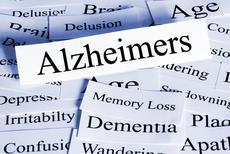
Study finds Alzheimer's could be diagnosed much earlier
Genetic markers appear to predict who volition get the disease afterwards in life
Alzheimer's disease strikes older adults, merely increasingly, doctors call back there are means to place immature people who will exist at risk.
The latest inquiry is published in the online issue of the journal Neurology, and it reveals a genetic risk score that may identify those at risk of the cerebral affliction long before any symptoms appear.
Elizabeth C. Mormino, PhD, with Massachusetts General Infirmary in Charlestown, Mass., says there is an early stage of the illness that can last a decade or more than without the appearance of symptoms.
"Given that electric current clinical trials are testing whether therapies can dull memory and thinking refuse among people at chance for the illness, it is critical to sympathise the influence of risk factors before symptoms are present," Mormino said.
The written report
The study looked at people with dementia and those without information technology, assigning each a numeric score based on the presence of high run a risk genes. The participants were examined for mutual Alzheimer's markers, including a decline in memory and thinking skills, clinical progression of the disease, and the volume of the hippocampus, which is the memory centre of the brain.
The enquiry team next looked at any links betwixt the run a risk score and hippocampus size in 1,322 healthy, younger participants between the ages of 18 and 35.
Results
Fifty-fifty amidst older people who had no dementia – but who had a higher genetic gamble – at that place was a stronger likelihood of worse memory and smaller hippocampus at the offset of the study.
Over the iii years of the study, a higher genetic risk score was besides associated with greater longitudinal memory and executive function decline and clinical progression of the disease.
The take chances score was also linked to overall affliction progression, with 15 of 194 participants who were cognitively normal at the first of the study developing balmy cognitive harm or Alzheimer's disease. Of the 332 subjects with mild cognitive impairment at the first of the study, 143 adult Alzheimer's affliction afterwards three years.
Mormino concedes it was a small study, simply she says further inquiry could help doctors meliorate identify people at high take chances of dementia at a much earlier historic period and begin preventive treatments sooner.
Alzheimer'south disease strikes older adults, but increasingly, doctors think there are ways to place young people who will be at take chances.The latest resear...
Read less Read more

Two proteins may be responsible for dementia in Alzheimer's patients
The study is the get-go two definitively link both proteins to cognitive decline
Researchers are still working hard when information technology comes to understanding how Alzheimer's disease works, and that commitment may exist beginning to pay off. A study conducted at the Douglas Mental Health Academy Institute may take uncovered the driving strength behind the disease'southward signature symptom – the development of dementia.
For a while now, scientists have suspected that dementia adult in Alzheimer's patients because of the presence of ii proteins, called amyloid and tau, respectively. However, they were uncertain about which protein, if either, was the driving force behind the dementia symptom. It turns out that it may be both.
A written report has found that both amyloid and tau work in tandem to create toxic effects that pb to encephalon harm. It is the first piece of definitive bear witness that connects the ii proteins to cerebral damage sustained by otherwise cognitively intact individuals.
Challenging previous theories
While the build-up of amyloid and tau proteins tin can be dangerous on their own, the researchers found that their ability to cause damage was increased when they were together.
"We specifically establish that both proteins mutually enhance their individual toxic effects and cause a brain dysfunction considered to be a signature of [Alzheimer'southward disease]. This finding challenges previous polarized theories that a single protein abnormality was the major driving force of affliction progression," said Dr. Pedro Rosa-Neto, pb scientist of the study.
The researchers came to their conclusions after analyzing 120 cognitively intact individuals over a 2-twelvemonth period. Participants had their amyloid and tau levels monitored for the elapsing of the study. Based on the changing levels that the researchers observed, they were able to come across how the proteins reacted with each other and so predicted which participants were the nearly probable to suffer brain harm as a result of Alzheimer'southward disease.
New therapies
The researchers believe that their discovery may help in the development of new, more effective therapeutic approaches that target both proteins in the encephalon.
"Until now, therapeutic clinical trials have targeted a unmarried pathological process. Our result paves the fashion for new therapeutic strategies for prevention or stabilization of [Alzheimer's illness]. For instance, combination therapies should exist used simultaneously against both amyloid and tau protein accumulation," said Dr. Tharick A. Pascoal, pb writer of the study.
The full written report has been published in the periodical Molecular Psychiatry.
Researchers are still working hard when it comes to understanding how Alzheimer's disease works, and that delivery may be beginning to pay off. A study c...
Read less Read more than
rollinsandelibubled.blogspot.com
Source: https://www.consumeraffairs.com/alzheimers-risks-and-treatment
0 Response to "My Alzheimers Then Finding Her Again"
Post a Comment